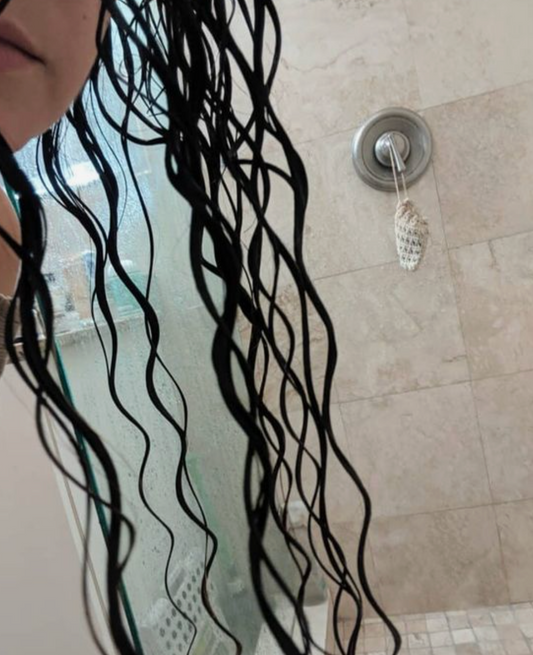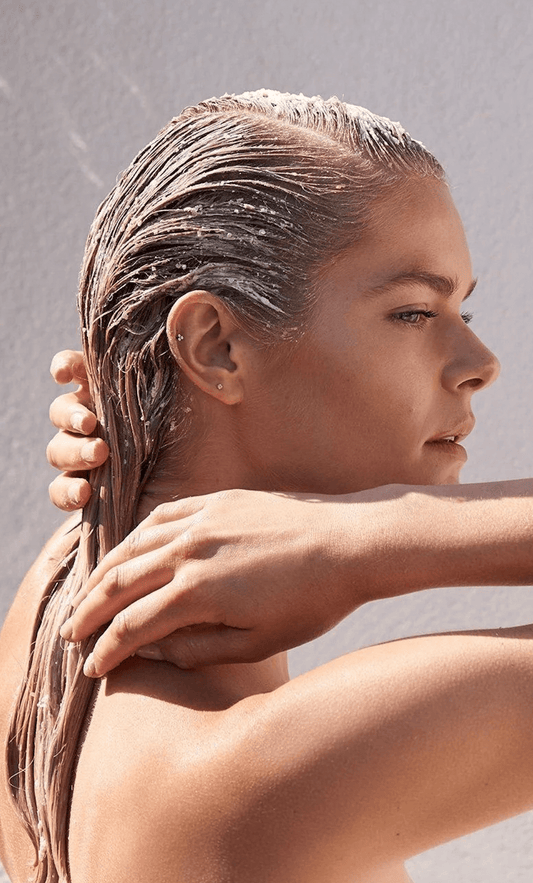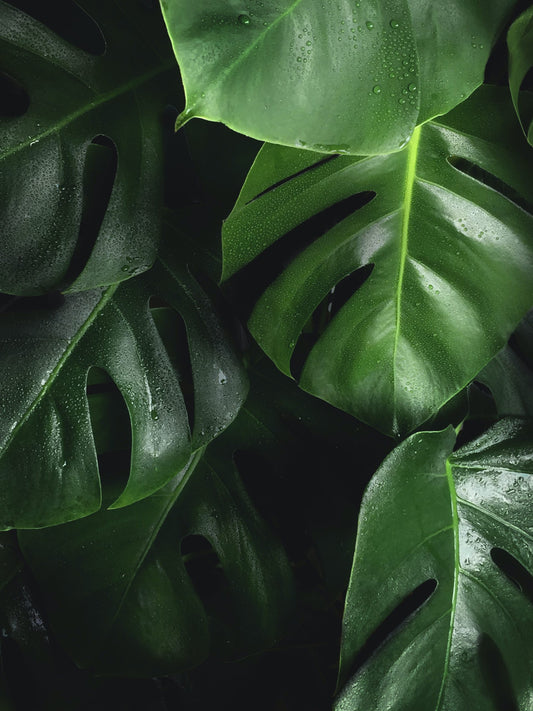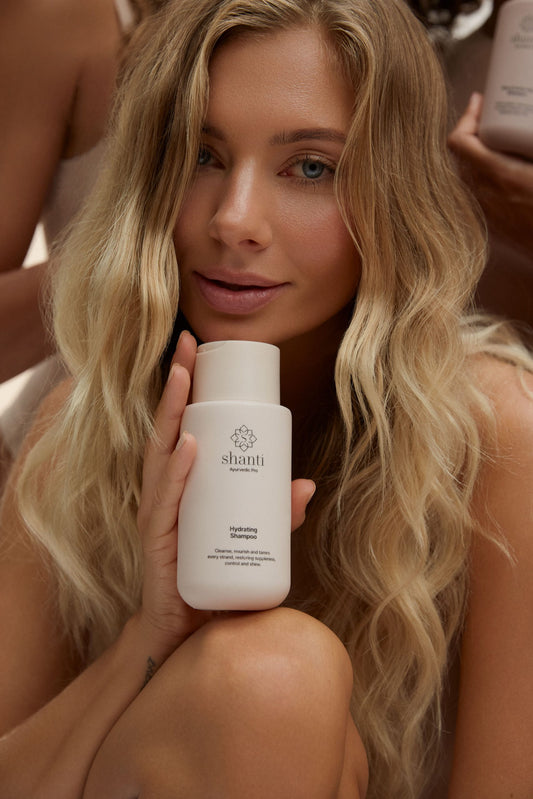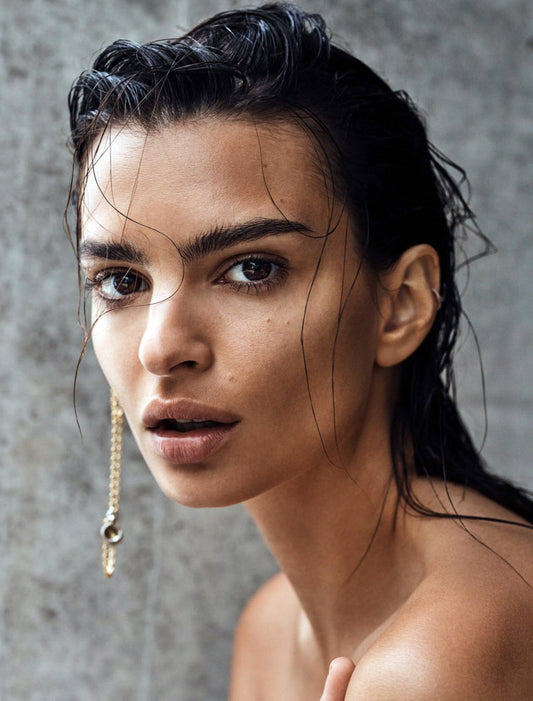You might've heard from someone or believed for so long that shampooing afro hair too much can have damaging effects on the curls and kinks. Well, washing hair "too much" is not good, but not shampooing hair for too long is not recommended as well. Over-shampooing can strip the hair of its natural oils, leading to increased dryness and brittleness. On the other hand, under-shampooing can cause product build-up and an unhealthy scalp. The conundrum of balancing the need for cleanliness with retaining the hair's natural moisture is a significant concern for individuals with Afro hair, and finding the right balance is crucial.
Now, people with afro-hair are taking better care of their tresses. After all, Afro hair is more susceptible to breakage and dryness due to its structure, which makes proper cleansing and moisturising a priority. That's why one question has persisted in the minds of those with Afro-textured hair: should I shampoo once or twice?
The answer to this hair care dilemma lies in understanding the unique properties of Afro hair and the effect that shampooing has on it. So, let's find out everything you need to know about shampooing your Afro hair. By the end of this informative read, you will have a clearer understanding of the optimal hair care regimen for your Afro hair, promoting healthy growth and natural shine.
How Often Should Afro Hair Be Shampooed?
A practical guideline to keep in mind when it comes to washing Afro hair is to aim for a frequency of every 7 to 10 days. However, if your lifestyle involves regular physical activities, you might need to consider cleansing your hair more frequently, perhaps every 4 to 5 days. It's essential to ensure that your scalp and hair are thoroughly cleaned, ridding them of flakes and any lingering product residue, in order to promote ideal hair health and foster growth. Relying solely on co-washing isn't enough, as the ingredients found in conditioners don't possess the full cleansing capabilities needed for the hair.
That being said, it's important to be aware that some traditional shampoos might not be the best fit for Afro-textured hair, as they often contain sulfates which can strip away the hair's natural oils. It's recommended to avoid such shampoos and instead opt for a gentler, sulfate-free alternative that better suits the specific requirements of Afro hair. One such option is Shanti World's specifically formulated shampoo Afro Hair Shampoo and Conditioner that is devoid of harsh sulfates and designed to cater to the unique needs of Afro hair.
Read More: What is The Best Shampoo For Afro Hair?
Can I Was My Afro Hair Every Day?
The question of whether one can wash their Afro hair every day is a common concern for individuals with this unique hair type. Like all hair types, Afro hair needs to be cleansed routinely to eliminate excess oil, grime, styling product build-up, and other impurities that gather on the hair and scalp. Nevertheless, Afro hair's inherent dryness and fragility make it unwise to wash it excessively.
Natural black hair possesses a distinct structure that can make it more susceptible to breakage and moisture loss compared to other hair types. Thus, overwashing can strip the hair of its natural oils, leading to increased dryness and potential damage. Consequently, it is advisable to find an optimal washing frequency that caters to the individual needs of your hair without compromising its health.
For those who have undergone treatments that result in straightened Afro hair, it is important to allow your hair some time to adjust. Refrain from washing your straight hair for at least two to three days post-treatment to ensure the treatment's effectiveness and avoid causing undue stress to your hair.
The ideal frequency for washing Afro hair can vary depending on factors such as lifestyle, scalp condition, and hair texture. Some individuals may find that cleansing their hair once a week is sufficient, while others may require washing every few days. It is crucial to pay attention to your hair's specific needs and adjust your routine accordingly.
To maintain the health and integrity of Afro hair, consider incorporating gentle cleansing methods, such as co-washing or using sulphate-free shampoos. These alternatives can help preserve your hair's natural oils while effectively removing impurities. Additionally, ensure you are nourishing your hair with regular deep conditioning treatments and moisturising products to counteract the effects of washing.
Which One To Use: Hot or Cold Water To Shampoo My Afro Hair?
When it comes to shampooing Afro hair, the temperature of the water used can have a significant impact on the health and appearance of your curls. Understanding the benefits of both hot and cold water can help you make an informed decision about the most suitable temperature for washing your hair. While cold water has its merits, using hot water, particularly during the shampooing process, can provide enhanced benefits for Afro hair.
Cold water has been praised for its ability to seal the hair cuticle, helping to lock in moisture and maintain the hair's natural shine. Rinsing your hair with cold water can also help reduce frizz and increase manageability. However, despite these advantages, the use of cold water alone may not be the most effective approach for shampooing Afro hair.
Hot water, on the other hand, offers several benefits that are particularly relevant for Afro hair care. Firstly, hot water is effective in opening up the hair cuticle, allowing the shampoo and conditioner to penetrate the hair shaft more deeply. This ensures that your hair is thoroughly cleansed and properly conditioned, resulting in better overall hair health. Furthermore, hot water is excellent at dissolving dirt, oil, and product buildup, making it a crucial component of the shampooing process for individuals with Afro hair.
To strike the perfect balance between the advantages of hot and cold water, it is recommended to start by using warm water when shampooing your Afro hair. The warm water will help to open up the cuticle, allowing the shampoo to cleanse your hair and scalp effectively. Additionally, warm water aids in the easy removal of dirt, oil, and product residue, ensuring a thorough and deep clean.
After shampooing and conditioning your hair, switch to cold water for the final rinse. This will help seal the cuticle, locking in the moisture and nutrients provided by the conditioner. The cold water rinse will also contribute to a smoother, shinier, and less frizzy appearance of your curls.
Read More: The Importance of Ayurveda In Hair Care Routine
Striking The Perfect Balance: Establishing A Routine For Shampooing Afro Hair
It is imperative to understand that the secret to establishing the perfect shampooing routine is to comprehend your hair's unique requirements and take into consideration factors such as hair porosity, lifestyle, and scalp health.
Hair care professionals now recognize that while Afro hair is delicate, it still requires regular shampooing to eliminate dirt, excessive oil, and accumulated product residue. Maintaining a clean scalp is essential for encouraging hair growth and preventing issues like dandruff or irritation. By selecting the ideal shampoo and shampooing frequency tailored to your specific hair type, you can effectively cleanse your hair without depriving it of the vital moisture it needs to flourish.
To begin with, hair porosity plays a crucial role in dictating how frequently you should shampoo. High porosity hair tends to absorb moisture quickly but struggles to retain it, making it more susceptible to dryness. Consequently, individuals with high porosity Afro hair might benefit from washing their hair less frequently, while using a gentle, moisturising shampoo. On the other hand, those with low porosity hair should consider shampooing more often to prevent product buildup and ensure proper absorption of hair care products.
Moreover, your lifestyle and daily activities can also influence your shampooing routine. If you lead an active lifestyle or engage in regular exercise, your hair and scalp may require more frequent washing to eliminate sweat and dirt. Additionally, your scalp's health should be assessed, as those experiencing dandruff or itchiness may need to shampoo more regularly to maintain a healthy scalp environment.
As a general guideline, shampooing Afro hair once a week is a suitable starting point for most individuals. However, it is important to monitor how your hair responds to this frequency and make adjustments accordingly. Some people may find that shampooing once every two weeks works better for their hair type, while others may require more frequent washing. You can also consider to co wash your hair, as it can be beneficial to people with afro, curly, or mixed-texture hair. The key is to be attentive to your hair's needs and to make informed decisions based on its unique characteristics.
Choosing the Right Shampoo for Afro Hair
Choosing the right shampoo for Afro hair is crucial in maintaining healthy, strong, and beautiful locks. The unique texture and structure of Afro hair make it more susceptible to dryness, breakage, and damage. Therefore, it's essential to use products that cater specifically to the needs of this hair type, providing adequate moisture and nourishment.
Selecting a shampoo that is natural and free of harsh chemicals is a must for Afro hair. Ingredients like mineral oil, argan oil, shea butter, olive oil, and coconut oil not only help retain moisture but also provide essential nutrients for your hair. Opt for shampoos that are paraben-free and sulphate-free, as these ingredients can strip your hair of its natural oils and exacerbate dryness. Natural ingredients are gentle on your hair and scalp, ensuring that you maintain a healthy balance.
After shampooing, it's vital to use a conditioner that offers hydration and is sensitive-scalp friendly. The right conditioner will work in tandem with your chosen shampoo to lock in moisture, keeping your hair soft and manageable. A moisturising conditioner will help to prevent frizzy hair and protect your locks from damage. Those with sensitive scalps should pay particular attention to the ingredients, looking for soothing components like aloe vera, chamomile, or calendula.
When selecting a conditioner, consider your hair type and specific needs. If your hair is more prone to damage or breakage, opt for a deep conditioning treatment or a leave-in conditioner to provide extra protection and nourishment. For those with curly or coily hair, a leave-in conditioner can help detangle and define curls, making styling easier.
Shanti World's Specially Formulated Shampoo For Afro Hair
Introducing Shanti World's Shampoo for Afro Hair, a product designed to cater to the unique needs of Afro hair, ensuring optimal health and vitality. This extraordinary shampoo is packed with benefits to nourish and care for your hair, offering a range of advantages that make it stand out from the competition. It is ideal for black women and men with dry hair, thick hair, thin hair, and those battling with hair loss.
Use our afro hair shampoo on the wash day and let the super moisturising formula of Shanti World's shampoo effectively prevent frizz, ensuring that your hair remains smooth and manageable. It promotes rapid hair growth and protects against breakage, helping you maintain strong and healthy hair. Additionally, the anti-dandruff properties of the shampoo provide relief from flakiness and itching, contributing to a healthy scalp environment.
Shanti World's shampoo is expertly crafted to remove product build-up, leaving your hair with added shine and vibrancy. The vegan, cruelty-free, and sulphate-free formula ensures that you can feel good about your choice, while the absence of parabens and the use of recycled plastic bottles demonstrate a commitment to environmental responsibility.
One of the key ingredients in this exceptional shampoo is Shikakai, a rich source of vitamins A, C, D, E, and K, which deliver essential nourishment to dry and damaged hair. Another vital ingredient is tamarind, known for its antibacterial properties that help combat dandruff and scalp issues. Tamarind also contributes to hair growth and enhances the overall strength of Afro hair. For the conditioner, we use highly potent and effective ingredients like the Irish sea moss and Bhringraj, the later one considered a "rejuvenator" due to its incredible effects on the hair health.
Shanti World's specially formulated Shampoo for Afro Hair is the perfect solution for those seeking a product that caters to the unique requirements of their hair type. With its myriad of benefits and commitment to ethical and environmentally-friendly practices, this shampoo is a must-have for anyone seeking to maintain the health and beauty of their Afro hair.
Read More: What Does Hydrating Shampoo Do?


